It typically takes between 3–6 months for SEO to show results.
That’s according to the ~4,300 people who responded to our polls on LinkedIn and Twitter.
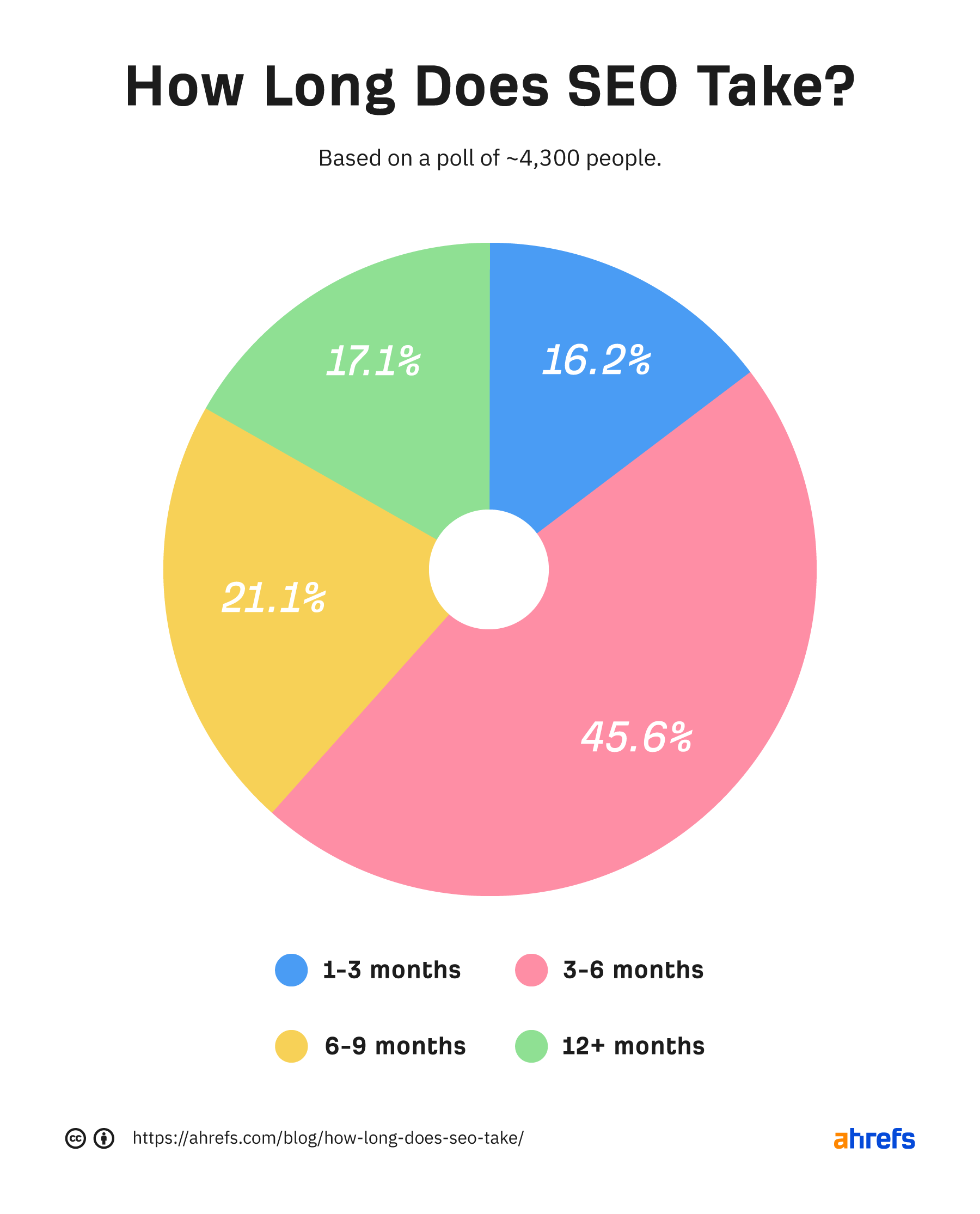
Sidenote.
We also polled our customers-only Facebook group, Ahrefs Insider. Only 82 people responded there, and 6-12 months was the most popular answer.
But the reality is that there’s no definitive time frame. It depends.
Why does SEO take so long?
SEO isn’t advertising. You can’t pay your way there. So if you want to rank #1 for a keyword, you need to demonstrate to Google that you’re the best result.
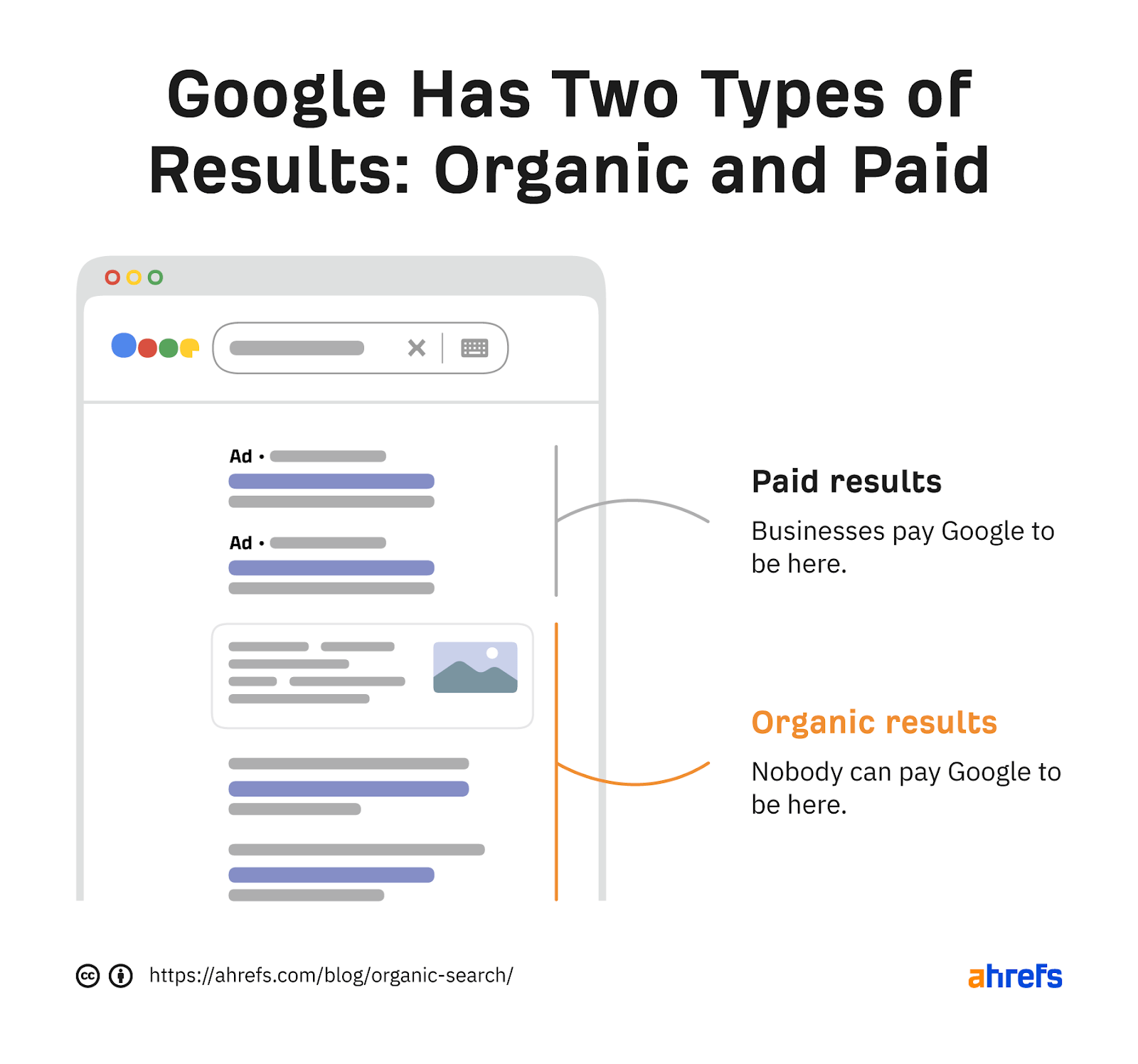
That means that how long SEO takes to “work” depends on many factors. Here are some factors to consider:
1. New vs. old website
Generally speaking, since they’ve been around for longer, older websites tend to have more backlinks (and, thus, more website authority), more pages, more content, as well as rank for more keywords.
On the other hand, newer websites need more effort and resources to get off the ground. In fact, some SEOs even believe that Google has a “sandbox” that prevents new websites from ranking.
So if you’re working on a new website, it may take longer for SEO to show results.
2. The competition
SEO doesn’t exist in a bubble. Your competitors are probably doing SEO too. If the keywords you’re targeting are highly competitive, then it’s going to take you a longer time to rank.
For example, we would love to rank for the keyword “seo.” But the pages ranking for this keyword have tens of thousands of backlinks:
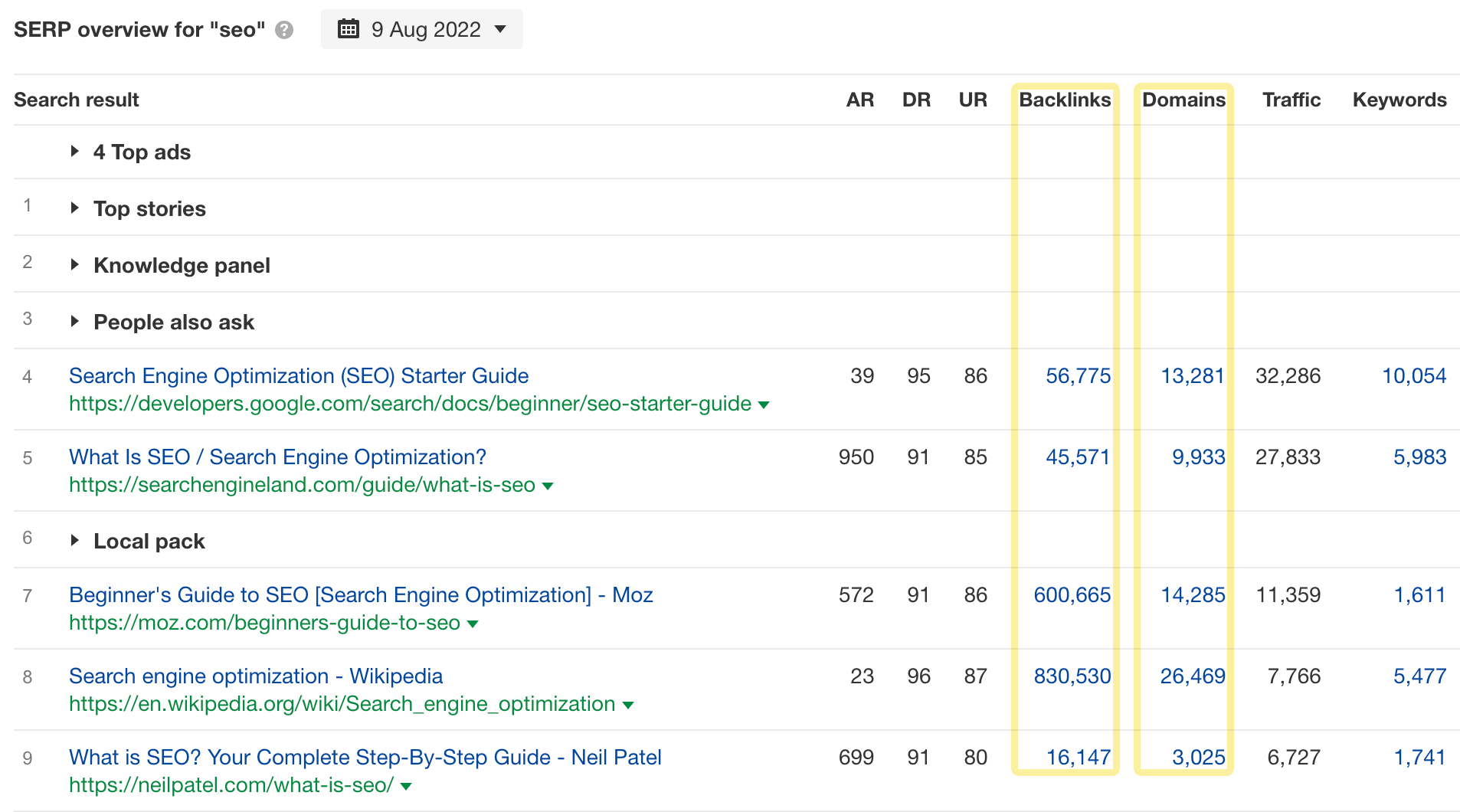
In fact, the Keyword Difficulty (KD) score for this keyword is a whopping 97:
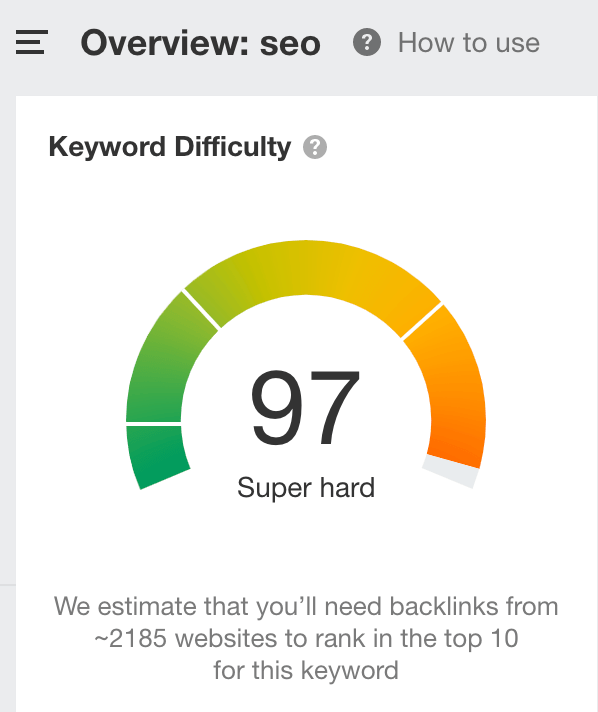
If we want to compete, it’ll take us tons of time and effort. On the other hand, it’s much easier to compete for “seo for startups.” We did and now rank #1:
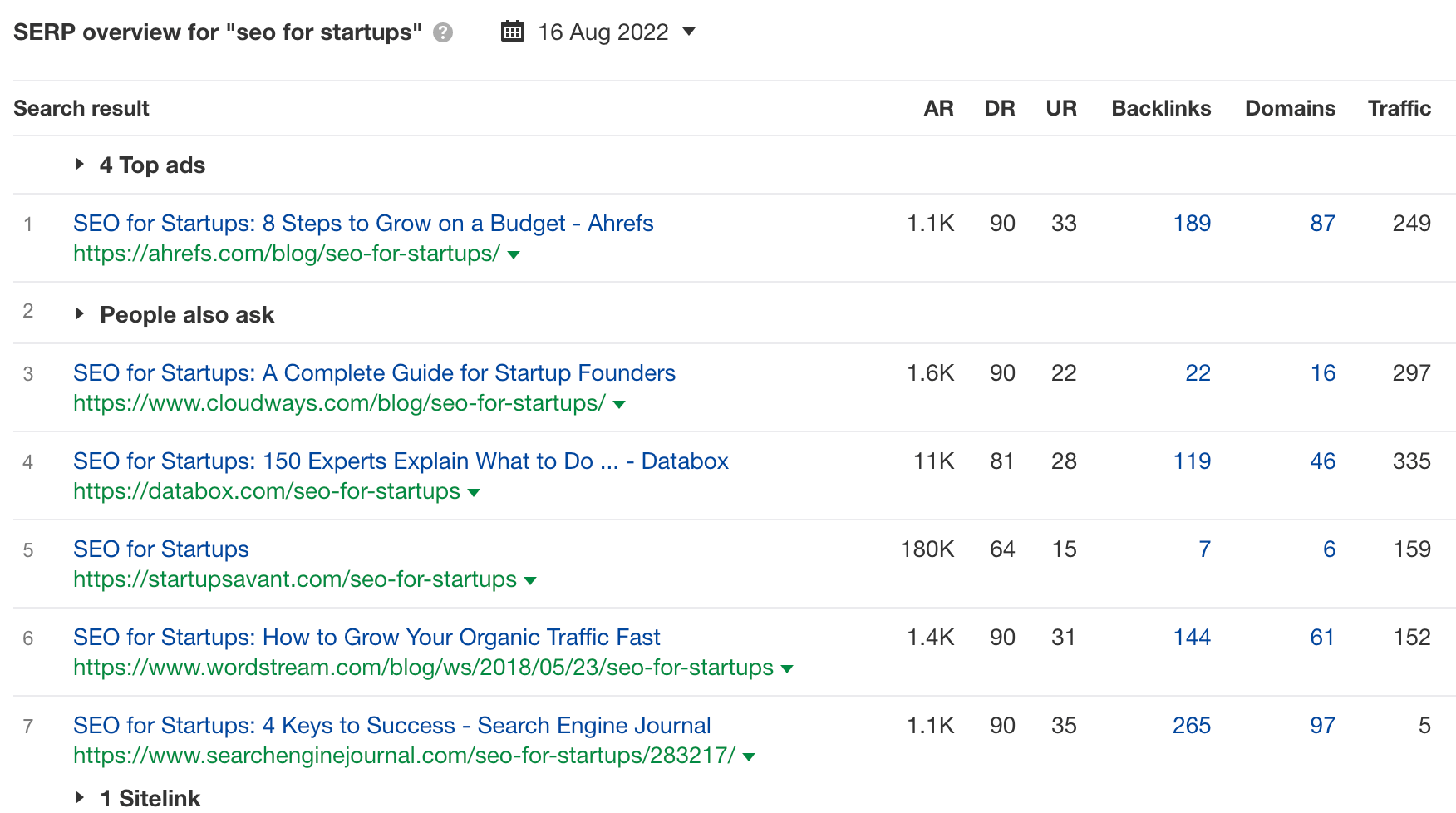
For reference, “seo for startups” has a medium difficulty of 22:
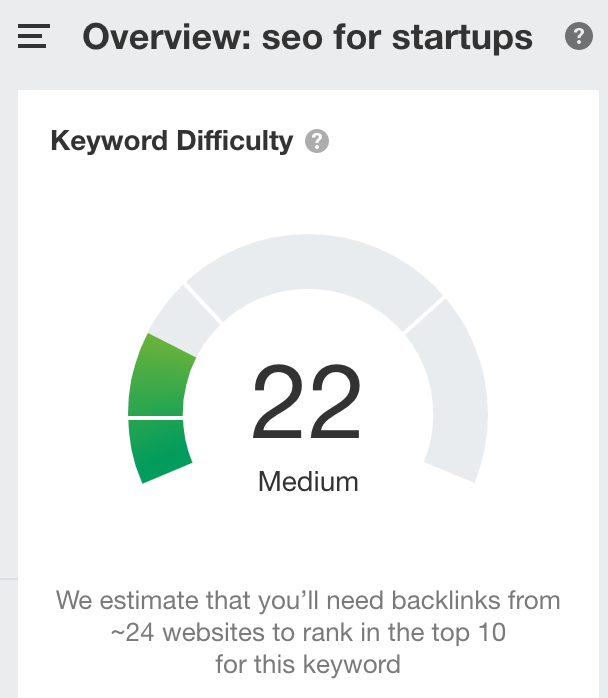
Recommendation
Here’s how to find keywords that are less competitive:
- Enter a relevant keyword into Ahrefs’ Keywords Explorer
- Go to the Matching terms report
- Set a KD filter to a maximum of 20 (or a number you’re comfortable with)
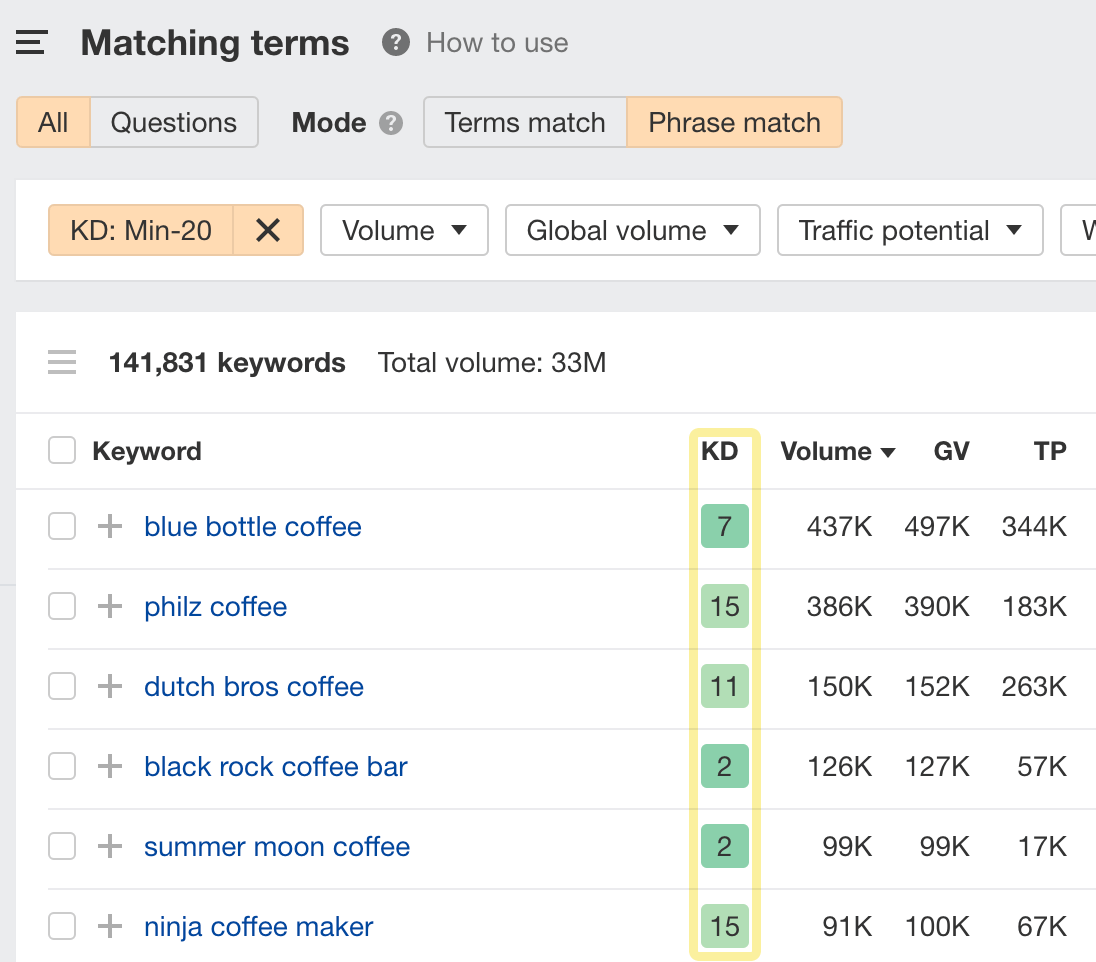
3. Your resources
The more resources you can dedicate and invest in SEO, the “faster” your results will be.
For example, you could hire more content writers to create high-quality content for you. Or you could invest in SEO tools and make your work easier, faster, and more efficient. You might even be able to create a link building team to actively build links for you. The possibilities are endless.
4. Your strategy
A good strategy is half the battle won.
If you have a detailed plan on how you’ll like to tackle your target keywords, you’ll have a higher chance of achieving faster results.
For example, you may have a bunch of important keywords you’ll like to rank for. However, they’re all super competitive. So if you’re investing all your resources into trying to rank for these keywords, it may take months or even years before you see any results.
Alternatively, you can build up slowly to your most important keywords by first targeting low-competition topics that have business value. That way, you can still generate some organic traffic to your site—while accumulating links, website authority, and more for the future.
Recommended reading: The Insanely Simple SEO Strategy for 2022 (The Orchard Strategy)
5. Your execution
To win the other half of the battle, you’ll have to actually execute.
There’s no point in dreaming up the greatest SEO strategy in the world if nothing gets done. Likewise, if you constantly have to justify to internal stakeholders whether SEO is worth the effort, that may hinder your efforts to execute.
So the more consistently you execute, the “faster” you’ll likely see results.
Recommended reading: How to Set the Right SEO Goals With 3 Examples
Learn more
Want to learn more about SEO? Check out these resources:




